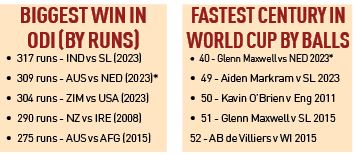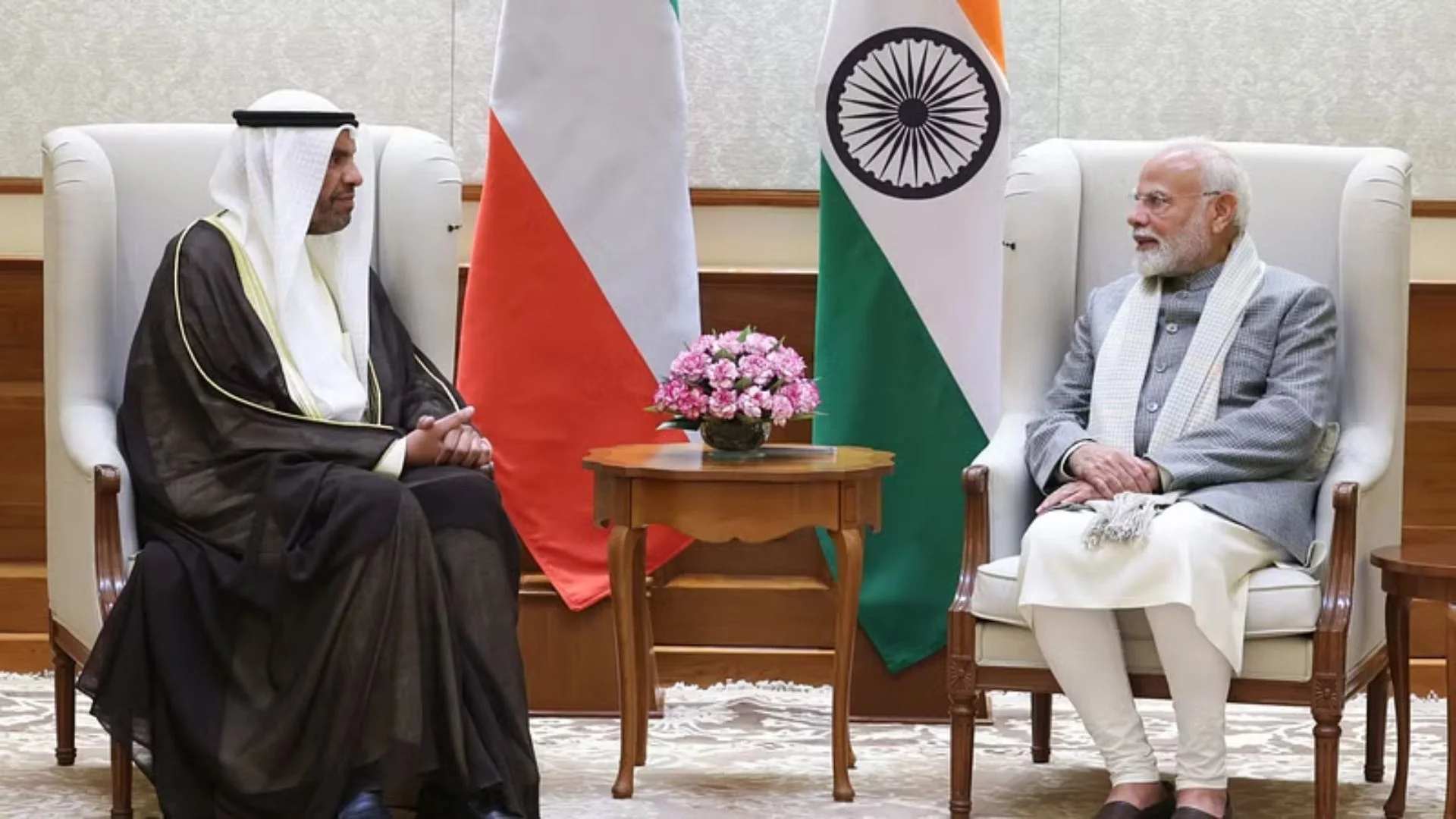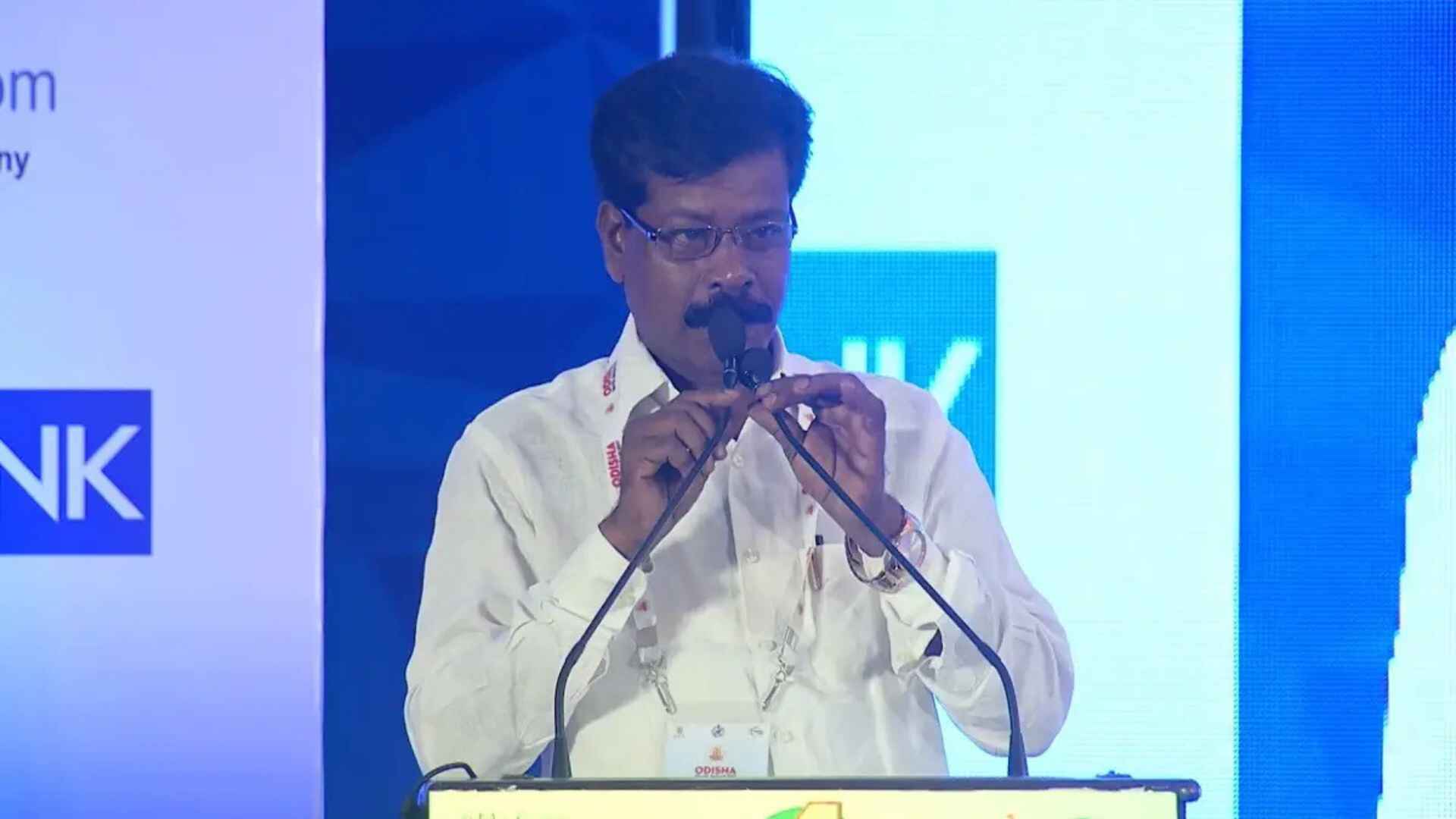Bas de Leed’s father, the Tim de lead who once participated in the 2007 World Cup, said in surprise after the match, “Today, my son bowled quite low, but that is the nature of cricket. Maxwell batted an excellent innings. Played.” It is noteworthy that Bass’s father had attended the match with his wife to watch this extraordinary cricket spectacle.
In a historic showdown at the Arun Jaitley Stadium in Delhi, Australia secured a resounding 309-run victory over Netherlands in the ODI World Cup on Wednesday, leaving cricket fans in awe. This extraordinary achievement now stands as the largest margin of victory by runs in World Cup history, surpassing the previous record of 275 runs, which Australia set when they defeated Afghanistan in Perth in 2015.
The key to Australia’s triumph was two exceptional centuries, one of which etched a place in the record books. Glenn Maxwell took center stage, masterfully scoring a breathtaking 106 runs off a mere 44 balls, securing the title of the fastest century ever in a World Cup, achieved in a mere 40 deliveries. David Warner also showcased his brilliance, amassing 104 runs from 93 balls.
Australia won the toss and chose to bat first, amassing a formidable total of 399 runs for the loss of 8 wickets in their allotted 50 overs. In addition to Maxwell and Warner’s heroics, Steve Smith contributed 71 runs, and Marnus Labuschagne added 62 runs. The lower order played a pivotal role, with Josh Inglis scoring 14 runs, Mitchell Marsh adding 9 runs, and Cameron Green chipping in 8 runs. Pat Cummins remained unbeaten, concluding the innings with 12 runs to his name.
Netherlands faced a daunting target of 400 runs but could only manage 90 runs before being dismissed in just 21 overs.
Notably, Logan van Beek emerged as the standout bowler for Netherlands, conceding 74 runs in his 10 overs while capturing four wickets. Bas de Leede also left his mark with two crucial wickets.
In an interview on the Dafa News Cricket Show, Zimbabwean national player and coach Tasmin Granger highlighted another remarkable achievement. Mitchell Starc, Australia’s left-arm fast bowler, seized the position of the leading wicket-taker among left-arm fast bowlers, surpassing the legendary Wasim Akram. Starc now boasts 56 wickets in 23 matches, placing him as the joint third-highest wicket-taker in ODI World Cup history, alongside Lasith Malinga, who also took 56 wickets. Starc stands behind only Glenn McGrath (71) and Muttiah Muralitharan (68). It’s worth noting that Starc led the wicket charts in conjunction with Trent Boult during the 2015 ODI World Cup, accumulating 22 wickets. Moreover, he was the highest wicket-taker in the ICC World Cup 2019, securing 27 wickets at an impressive average of 18.59.
This match also marked Australia’s return to international cricket against Netherlands after a 16-year hiatus, with their last encounter occurring in the 2007 World Cup at Warner Park, St Kitts. Notably, Steve Smith celebrated his 150th ODI appearance, becoming the 21st Australian cricketer to reach this significant milestone.
Glenn Maxwell’s record-breaking century in just 40 balls cements his place in World Cup history, establishing a new benchmark for batting excellence. These extraordinary performances are destined to become enduring moments in the rich tapestry of cricket history.
Sunil Yash Kalra is a women’s cricket historian and founder of Indian Sports Fans.







